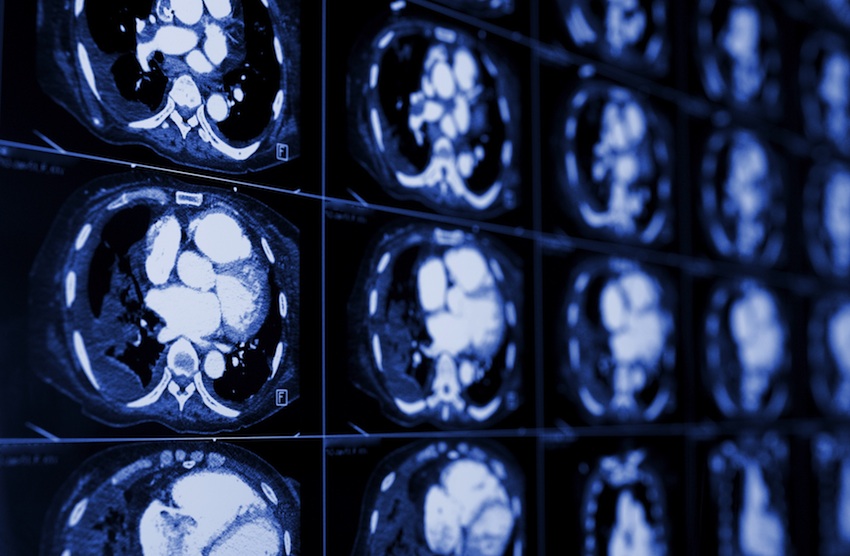Heavy Smokers Urged to Undergo CT Scans

CT Scan image via Shutterstock.
The U.S. Preventative Services Task Force issued a recommendation statement last week urging heavy smokers to get annual CT scans. The new recommendation could have the potential to save 20,000 lives per year. A report in 2010 from the National Cancer Institute found that CT scans, which the report says may be able to detect smaller tumors than an X-ray, could reduce mortality rates by 16 percent among patients who are at the highest risk for lung cancer. This report was the basis for the recommendation released Tuesday.
Lung cancer is the third most common cancer and the leading cause of cancer death in the United States, often because the cancer cells are discovered too late. According to the Center for Disease Control and Prevention, 77 percent of individuals with lung cancer died from the disease in 2009.
In total, 37 percent of U.S. adults are current or former smokers, and the incidence of lung cancer increases with age. Therefore, smokers who are 55 or older and have smoked at least a pack a day for 30 years are more likely to be diagnosed with cancer, even if they quit smoking as long as 15 years ago. People who have been exposed frequently to tobacco smoke are also at risk. It is these high risk individuals, then, who should undergo CT scans once a year according to the task force’s recommendations.
The best news is that insurance companies cover procedures strongly recommended by the task force, so eligible patients would likely not have to pay for the costly CT scans themselves. Those who are eligible for the scans wouldn’t even have co-pays under President Obama’s health care laws, according to a New York Times report on the new recommendations.
In the New York Times, Dr. Harold E. Varmus, the director of the National Cancer Institute, said that the recommendation would change the way that people think about lung cancer, but he cautioned against giving smokers a false sense of security:
“The main message is unchanged,” Varmus said. “Don’t smoke.” Smoking is the culprit in about 85 percent of all lung cancer deaths.
Because the benefits of the screenings will depend on how much an individual has smoked, Dr. Peter B. Bach of the Memorial Sloan-Kettering Cancer Center in New York has developed an online tool for people trying to assess whether or not they should be screened.

